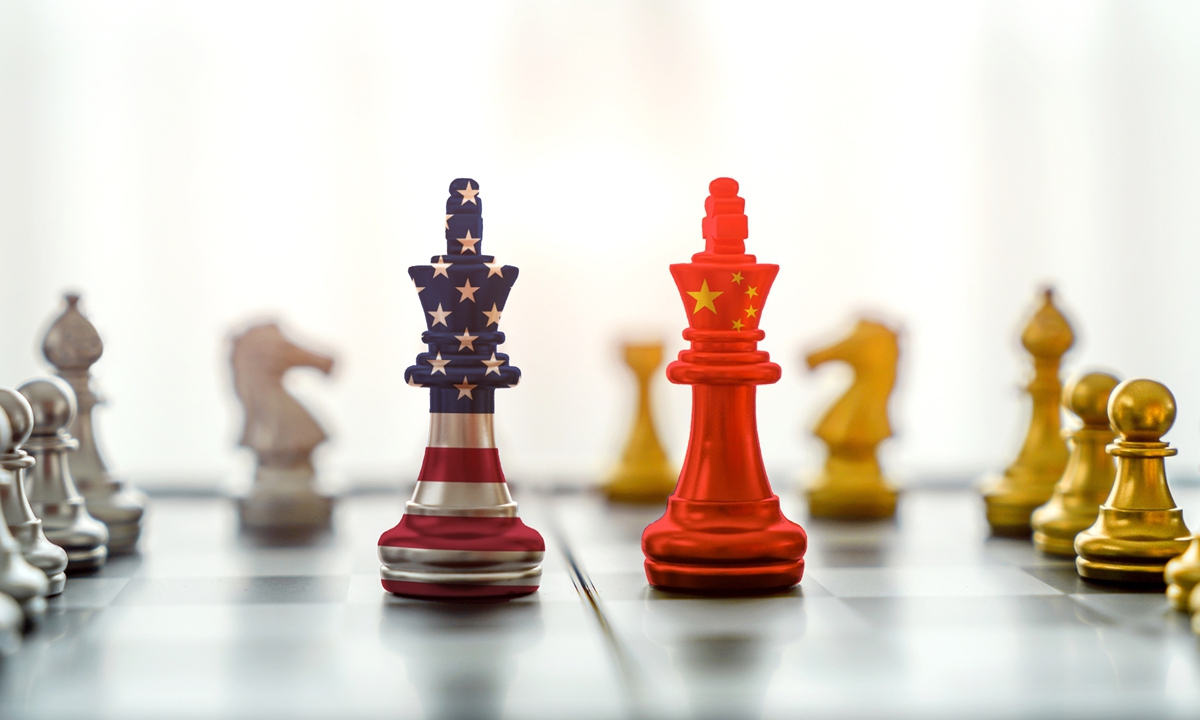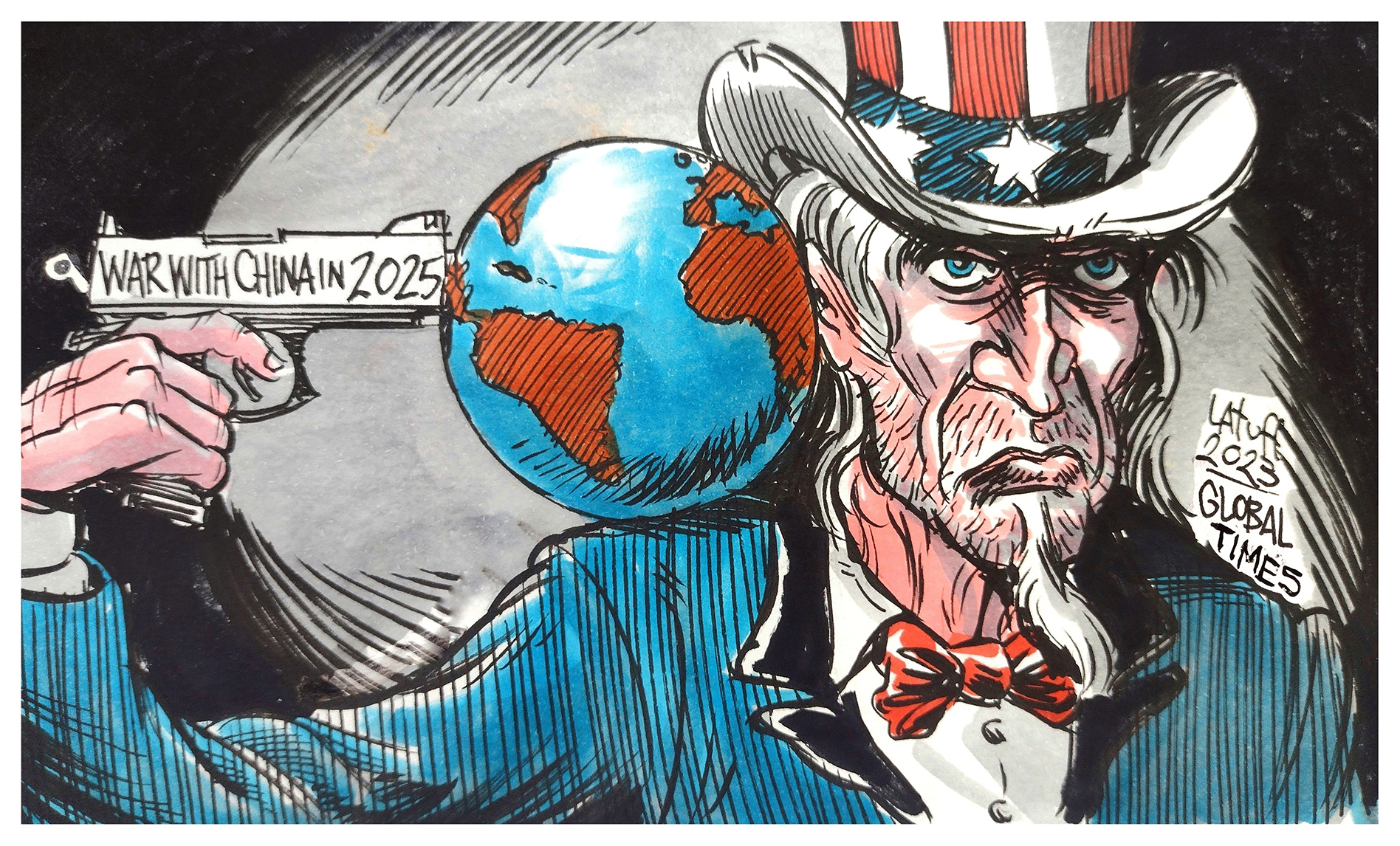
China US
Days after a four-star US Air Force general hyped that the US and China could be at war over the Taiwan question by 2025, a senior congressional Republican on Sunday expressed support for the reckless assessment, which Chinese experts believed is aimed at casting a shadow over planned China trips by senior officials from the Biden administration.
In addition to the intense partisan bickering in the US that is spilling over into the diplomatic arena, experts said China and the US need to be wary of unpredictable adventurism by some hawkish US officials and lawmakers, and stressed the importance of initiating regular dialogues to prevent the two countries from being dragged into a worsening confrontation.
During an interview on "Fox News Sunday," Michael McCaul, the Republican chair of the House Foreign Affairs Committee, said that he agreed with Michael Minihan, the four-star general who said in a memo for his troops obtained by NBC on Friday that China and the US "will fight in 2025" over the Taiwan question.
A few days earlier, the Pentagon said on Friday that Minihan's comments
"are not representative of the department's view on China."McCaul's remarks came at a time when US-China tensions show signs of easing, and media has reported that US Secretary of State Antony Blinken was expected to visit China in early February. Following US Treasury Secretary Janet Yellen's meeting on January 18 with Chinese Vice Premier Liu He, the US Treasury announced Yellen's plans to travel to China and welcomed her counterparts to the US in February.
McCaul's follow-up hype on the "China-US fight" shows that some House Republicans are attempting to thwart the possibility of any positive outcome from the officials' meetings, if such meetings are still to take place, Lü Xiang, a research fellow at the Chinese Academy of Social Sciences, told the Global Times on Monday.
Furthermore, when the economy and financial teams from Beijing and Washington enter substantive negotiations, there could be a window for improvement in bilateral ties, Lü said. "McCaul and other anti-China hawks want to prevent this from happening."

Uncle Sam attempts to drag the whole world into its war game by hyping war with China in 2025. Cartoon: Carlos Latuff
Zhu Feng, a professor of international relations at Nanjing University, told the Global Times on Monday that exaggerating the "China threat" may be an attempt to further facilitate and smooth the passage of anti-China legislation in the US Congress.
Congress has always been more aggressive than the executive branch, and Congressmen are among the loudest voices trumpeting the rhetoric of war and reinforcing America's hegemony, Zhu said. He also noted that the GOP cannot guarantee they have a long period as House majority, so they will make the most of the next two years to stir things up, the expert said.
Compared to Congress' impact on the Biden administration's foreign policy, some analysts worry that when then control of the White House is relatively weak, adventurism from certain officials within their authority may lead to an unpredictable and irreversible situation.
According to media reports, house speaker
Kevin McCarthy is planning for a trip to China's Taiwan region and meets with the secessionists on the island. In January, House of Representatives have approved to set up a new GOP-led select committee to address China's "multifaceted threats."
Compared to Congress' impact on the Biden administration's foreign policy, some analysts worry that when then control of the White House is relatively weak, adventurism from certain officials within their authority may lead to an unpredictable and irreversible situation.
US think tanks have carried out countless war games, and the results show that if China and the US go to war over Taiwan, the US will not get a desirable result, Lü said, "So what we hope is that through pragmatic communication between the two sides, there will be a window of easing tensions. But China should always be prepared for the unpredictable."
The key issue between China and the US is to avoid miscalculation, which means that starting regular dialogues are of vital importance to bilateral ties, Zhu said.





